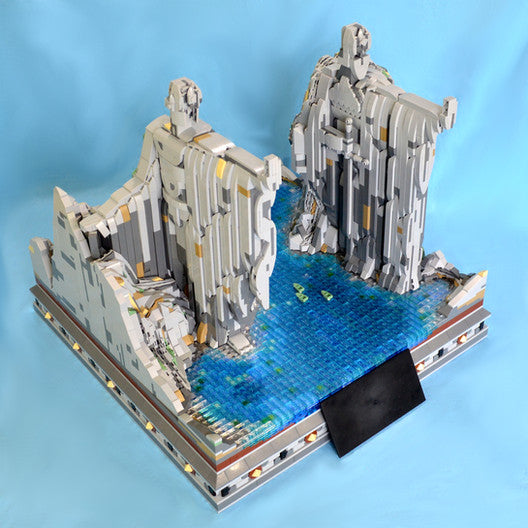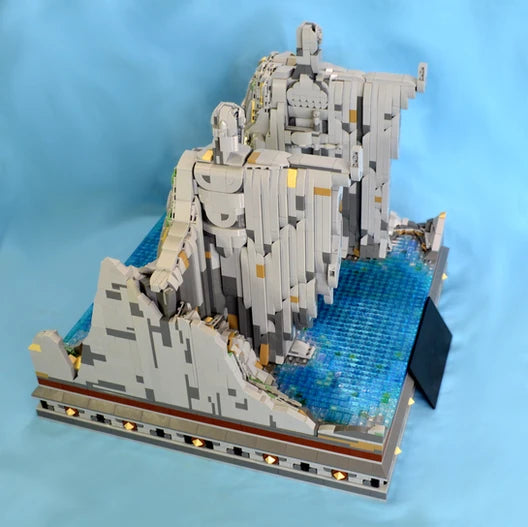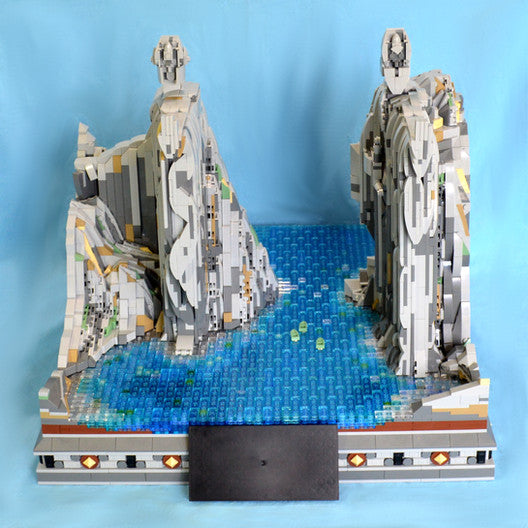The Playwell Journey: Part Five
This is the fifth part of a series in which we follow the journey that brought Playwell Bricks’ own Jason Pyett from a stay-at-home-Dad to bespoke models designer to the CEO of an international design company. In Parts One through Four, we’ve watched Pyett’s passion for bricks evolve into workshops, robotics, his not-for-profit, and in this part, we’ll journey with Pyett as he gets his first-ever custom set commission.
Pyett loves a challenge. He calls them an “impossible balloon” and explains that “I always set up an impossible balloon and then I go and beat it,” proving it was possible all along.
One day, while he was sorting bricks with one of the volunteers at the local school, they turned to him and asked, “Do you think you can ever make money doing this?”
Pyett shook his head. “Absolutely not.” Still, he kept thinking about it, realizing that he’d found his next impossible balloon.
In the meantime, Pyett was experimenting with content for the Playwell Bricks YouTube channel. He discovered his strength lay in instructional videos and leaned into that kind of content. Soon, he was posting videos showing how to use Stud.io software to fill a niche that he knew up-and-coming brick designers needed.
“And I was posting my own experiments on social media every day. Weird, wonky things that were popping into my head.” His first client saw those experiments and Pyett’s YouTube videos and approached him, offering a commission to build the Argonath from Lord of the Rings in genuine LEGO® bricks.
Pyett had no idea if he could do the design, but that was just another impossible balloon. “I just said yes and figured it out along the way.”
There’s an anecdote originating from the book Art & Fear by Boyles and Orland that sums up Pyett’s philosophy about designing. As the story goes, a pottery class is divided into two sections. The first section is told that they will be graded on the quality of a single pot, while the second will be graded on how many pots they produce. The first group spends all their time working out how to make a single, perfect pot, while the second just got to work making the things. In the end, the second group produced the best pots because instead of striving for perfection, they practiced their craft rather than seeking perfection. Like the second group, Pyett just got to work and didn’t waste time worrying about perfection.
He started with the head of the Argonath. “I figured if I could do the head, then I could do the rest, because the head was going to be the most difficult part. And then it was just continuing out, building the robes in ways I’ve never thought of before.”
“The water I wanted to have actual depth. I didn’t just want to use flat tiles, so the water is actually three plates deep and you can look in and see colors underneath the surface,” Pyett says with pride. “It’s not just blue.”
It took Pyett three months to finish the digital design, and another three months to finish the physical build of the Argonath. He’s still proud of that design years later, while admitting, “I can see room for improvement, but it was quite good.”
Are you curious how Pyett went from his first commission to the CEO of a well-respected, international design company? Stay tuned in this space for the Playwell Journey: Part Six, where Pyett gathers the original Playwell Bricks team together and lands a major corporate client.



